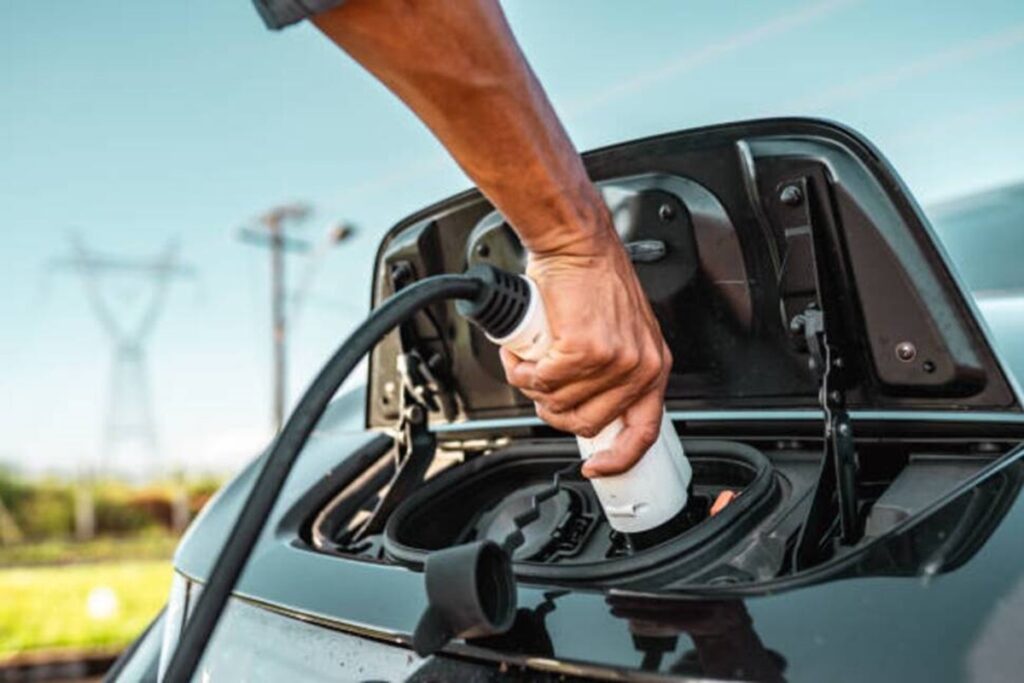
Things to Consider Before Embarking on EV Ownership
Car manufacturers are marching steadily toward electrification, and the number of all-electric vehicles is sizable and more diverse than ever. The lineup includes athletic cars and family-friendly SUVs. You’ll even find brawny trucks that run solely on all-electric power.
There are many great reasons for buying an EV. Still, these vehicles differ significantly from gas-powered models, and it’s wise to fully understand those differences before purchasing.
Sometimes, asking the right questions can give you the clarity needed to make an informed decision. To steer you on the right path, we’ve compiled some questions to ask before you buy an electric car.
How Much Driving Range Does the EV Have?
An EV’s driving range is the distance it can travel on a fully charged battery. The longer the driving range, the better, since it allows you to take extended excursions without stopping at a charging station.
Electric Cars With the Longest Range
Overall, EV driving range has dramatically improved in recent years; however, the range varies tremendously from one model to the next. The driving range offered by some models is limited. For example, the base-model 2024 Nissan Leaf travels just 149 miles on a full charge; that range may not be enough for some drivers. On the other end of the spectrum, some models offer a generous driving range. Several models provide more than 300 miles of range, and the Lucid Air travels more than 500 miles on a full charge.
Should I Buy a New or Used EV?
Because of depreciation, used vehicles may be more affordable than new ones. That’s true of gas-powered models, and it’s true of EVs. That means you can save money by purchasing a used EV.
However, one thing to remember is that automakers have made many improvements in EV battery range in recent years, and sometimes the changes have been dramatic. For example, the 2012 Tesla Model S travels up to 265 miles on a full charge. The 2024 version does much better, offering up to 405 miles of driving range. Therefore, if you choose an older EV, you may have to settle for a driving range that is less than you’d get with a comparable new one.
Also, a new EV will likely have more up-to-date tech and safety features than an older one.
Should I Lease or Buy an Electric Car?
With leasing, the monthly payments are typically lower than those associated with financing a car purchase. That’s because, with leasing, you’re not paying back the full value of the car as you are when purchasing the vehicle. Instead, you’re only borrowing and repaying the difference between the new car’s value and its value at the end of the lease term. That’s true when leasing all vehicles, not just EVs.
Should You Buy or Lease an Electric Car?
John M. Vincent and Steven LovedayJuly 31, 2024

The big drawback to leasing is that you don’t own the vehicle at the end of the term as you do when financing your purchase. However, that may not be a drawback when it comes to EVs. EV battery technology has changed rapidly in recent years and continues to evolve. Leasing gives you the freedom to get into a new vehicle at the end of the lease term, and that may be desirable for EV drivers seeking to be behind the wheel of a model with the latest battery technology.
Should I Buy an Electric Car Now or Wait?
It’s an excellent time to buy an EV. Automakers like Tesla and Ford have cut prices on their EVs to spur demand.

Automakers have been consistently launching new EVs, so next year’s vehicle range may be even more appealing than the one we have today, which is one argument for waiting. However, the current EV selection is diverse and impressive. If you need a vehicle and have the finances to purchase or lease one, you will likely be able to find a suitable pick in today’s current crop of outstanding EVs.
ADVERTISEMENT
Can I Charge My EV at Home?
At-home charging is the most convenient and affordable way to refuel your EV. You can install a charger in your garage if you own a home. Some apartment buildings provide charging facilities to tenants. If there’s a charging station nearby, you can do just fine using that facility to refuel your vehicle, so it’s not a deal-breaker if you’re unable to charge at home. However, at-home charging is ideal.
Are Insurance Costs Higher for EVs?
Electric cars have the same policies as gas-powered cars. That means you wouldn’t be charged more for insurance simply because a car has an all-electric powertrain. However, insurance costs are often directly related to the price of the vehicle, which is why expensive luxury cars have higher insurance costs than budget-friendly econoboxes. Some EVs cost more than their gas-powered counterparts, which may increase insurance rates. Also, there are variances within this vehicle category; the insurance costs for a relatively affordable mainstream EV may be much cheaper than those for a high-priced luxury model.
Comments are closed